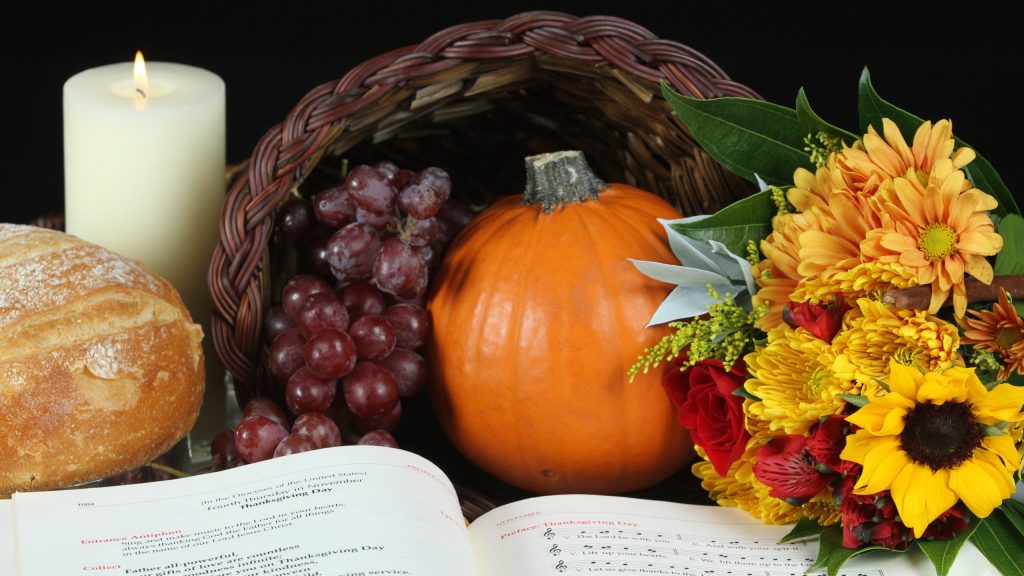Sarah McCauley, her husband and their two children normally divide Thanksgiving weekend between two large family gatherings in Minnesota and Wisconsin, but because of COVID-19, this year's celebrations will likely be virtual.
"It can't happen this year and we're sad," said McCauley, a licensed associate marriage and family therapist at Clearwater Counseling in Woodbury, Minnesota.
Like much of 2020, the pandemic is bringing uncertainty and even grief to Thanksgiving social gatherings. Hoping to slow down fast-rising numbers of people contracting the coronavirus in this kind of setting, Gov. Tim Walz decided Nov. 10 to limit social get-togethers to 10 people from no more than three households.
Walz and state public health officials revised that advice Nov. 16, urging people not to gather for Thanksgiving outside their immediate household and asking college students to reconsider going home for the holiday.
Many might wonder what they can be thankful for this Thanksgiving, given the tumult of 2020 and COVID-19-related restrictions.
But McCauley and others suggested there are new opportunities for gratitude and loving others while embracing -- and simplifying -- traditions. As people follow safety guidelines and seek ways to connect with loved ones, one priest said everyone can take comfort in the fact that God's love hasn't changed.
McCauley's family planned to share meals, games, prayers and pictures on social media with relatives, heeding warnings from the Centers for Disease Control and Prevention that travel increases the chance of contracting and spreading the virus. Still, she grieved not spending meaningful, in-person time with loved ones.
A big part of working through grief and finding gratitude is honoring the fact that this isn't a normal year, said McCauley, a parishioner of Transfiguration in Oakdale, Minnesota.
Grief might accompany uncertainty this holiday season, and Catholics should give themselves permission to say, "I don't know," she told The Catholic Spirit, newspaper of the Archdiocese of St. Paul and Minneapolis.
God hasn't abandoned his people, said Father Ben Little, pastor of St. John the Baptist in Savage, Minnesota. People can reflect on ways God remains generous, including through the gifts of life and of his son.
"God wants to be with us in these ways that we're feeling deprived and that he is there for us," Father Little said.
Christina Crow is encouraging her four children to be thankful for their faith, country and health.
"I think there will be more conversations, especially at the dinner table, about 'look at what we have. Even if this has been taken away, look at what we do have,'" said Crow, sacramental coordinator at the University of St. Thomas and a parishioner of Nativity of Our Lord, both in St. Paul.
Throughout the holiday, Crow said, her family writes down what they're thankful for on a large piece of paper.
One blessing of smaller gatherings is greater intimacy and deeper conversation, Crow said. A smaller group also could order dinner from a restaurant that might be struggling to make ends meet because of COVID-19, she said.
It may be a good time to simplify, she added.
"This year, if you did brownies instead of pie, it would be OK," she said. "The spirit of Thanksgiving is not only in the food, it's in what Thanksgiving is. It's in the people."
For Crow and her family, attending Thanksgiving Mass is a meaningful tradition because the word "Eucharist" means thanksgiving.
Along with Mass, Father Little recommended praying praise-related psalms such as psalms 7, 34, 92 and 103. He suggested reading letters that St. Paul wrote while imprisoned: Ephesians, Colossians and Philemon.
This is a good year for families to educate young children about stories behind the Thanksgiving holiday, McCauley said. "It was seeking joy and connection in a time of great suffering," she said of the first Thanksgiving, adding that recounting the story is "also a great opportunity to educate on marginalized groups."
Families that can't gather can connect in other ways, said Father Little, who spent almost a month under COVID-19 quarantine this fall, first after testing positive for the virus and later when his associate pastor did. He missed parishioners and staff, but he was blessed by their emails and letters, though he never developed COVID-19 symptoms.
Catholics can express prayers or intentions for those who can't be with them, McCauley said.
Crow's family plans to have a "window visit" with elderly loved ones at a care facility, call them and mail the children's hand-shaped paper turkeys.
Texting or emailing photos also offers a sense of being there, along with playing games together online, she said.
The CDC suggests that households share recipes and dishes they make via Zoom or another video platform, or deliver a traditional meal to separated loved ones in a noncontact way.
Like the stresses of wars and the Depression, the pandemic will change people, and there will be a filtering out to what matters most, Crow said.
Catholics should be easier on themselves in this difficult year, she said.
"Take care of yourself in that way. Thanksgiving will still come, even if you don't have stuffing this year."

